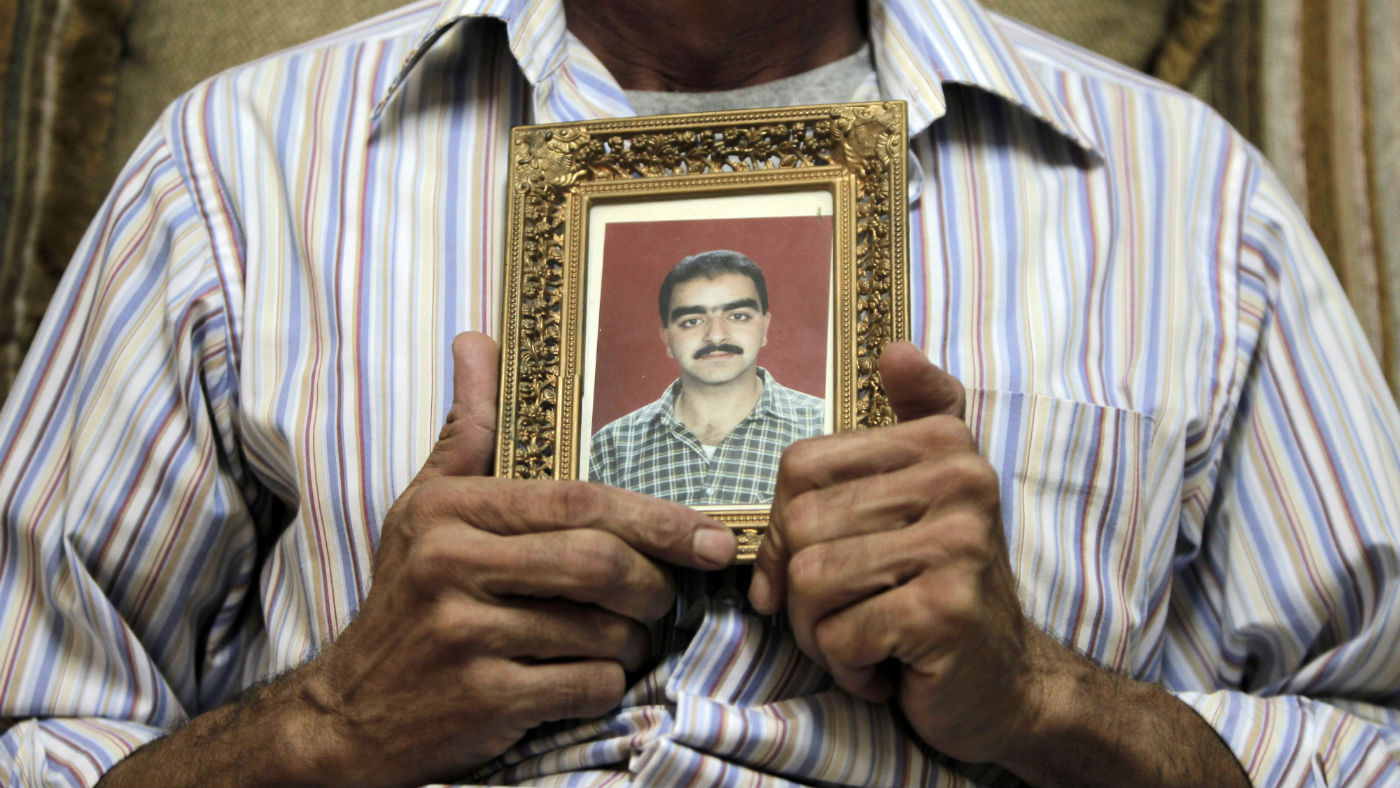75,000 Syrians 'disappeared' by Assad regime
Amnesty launches a campaign against abduction to mark International Day of the Disappeared

A free daily email with the biggest news stories of the day – and the best features from TheWeek.com
You are now subscribed
Your newsletter sign-up was successful
More than 75,000 people have disappeared after being seized by the Assad regime since the start of the Syrian civil war.
The statistic comes from the UK-based Syrian Network for Human Rights, which has compiled monthly reports on the number of disappeared since the conflict began in 2011. Victims range from senior politicians to ordinary families picked up at checkpoints for routine examination of paperwork.
The figure was cited by Amnesty International, which is launching a campaign to highlight abductions in conflict areas to mark International Day of the Disappeared.
The Week
Escape your echo chamber. Get the facts behind the news, plus analysis from multiple perspectives.

Sign up for The Week's Free Newsletters
From our morning news briefing to a weekly Good News Newsletter, get the best of The Week delivered directly to your inbox.
From our morning news briefing to a weekly Good News Newsletter, get the best of The Week delivered directly to your inbox.
To raise awareness of the plight of detainees, Amnesty "is calling on the UN to do more to get the issue on the international agenda, and has accused the organisation of paying lip service to the concern", The Guardian reports.
Amnesty's Middle East research director, Philip Luther, said: "The plight of those who have vanished after being arrested by the authorities or detained by armed groups is a tragedy that has been largely ignored internationally."
An Amnesty report published in February revealed the Syrian government had secretly hanged as many as 13,000 Assad opponents at the country's most notorious prison, Saydnaya, during the first five years of the conflict.
Abductions without trace "have been a hallmark of the Syrian government since long before the time of the current president", says The Times.
A free daily email with the biggest news stories of the day – and the best features from TheWeek.com
While abductions been used as a tool of intimidation against opposition politicians for decades, ordinary Syrians have also disappeared in large numbers, "many presumed to have simply died under torture", says the paper.
Writing for HuffPost UK, UK special representative for Syria Gavin Bayley says "the worst part for many Syrians is not knowing" what has happened to family members. The Assad regime refuses to disclose the names of many of those it has detained, or acknowledge how many are being held prisoner.
Bayley reiterated the UK's position, calling for "a transition away from the Assad regime" and urged the government to release all those it has illegally and arbitrarily detained.
"This is a crucial step to building an inclusive process," he said, which will "enable a political settlement to end the conflict."
-
 How the FCC’s ‘equal time’ rule works
How the FCC’s ‘equal time’ rule worksIn the Spotlight The law is at the heart of the Colbert-CBS conflict
-
 What is the endgame in the DHS shutdown?
What is the endgame in the DHS shutdown?Today’s Big Question Democrats want to rein in ICE’s immigration crackdown
-
 ‘Poor time management isn’t just an inconvenience’
‘Poor time management isn’t just an inconvenience’Instant Opinion Opinion, comment and editorials of the day
-
 Epstein files topple law CEO, roil UK government
Epstein files topple law CEO, roil UK governmentSpeed Read Peter Mandelson, Britain’s former ambassador to the US, is caught up in the scandal
-
 Iran and US prepare to meet after skirmishes
Iran and US prepare to meet after skirmishesSpeed Read The incident comes amid heightened tensions in the Middle East
-
 Syria’s Kurds: abandoned by their US ally
Syria’s Kurds: abandoned by their US allyTalking Point Ahmed al-Sharaa’s lightning offensive against Syrian Kurdistan belies his promise to respect the country’s ethnic minorities
-
 Israel retrieves final hostage’s body from Gaza
Israel retrieves final hostage’s body from GazaSpeed Read The 24-year-old police officer was killed during the initial Hamas attack
-
 China’s Xi targets top general in growing purge
China’s Xi targets top general in growing purgeSpeed Read Zhang Youxia is being investigated over ‘grave violations’ of the law
-
 Syria’s Islamic State problem
Syria’s Islamic State problemIn The Spotlight Fragile security in prison camps leads to escape of IS fighters
-
 Panama and Canada are negotiating over a crucial copper mine
Panama and Canada are negotiating over a crucial copper mineIn the Spotlight Panama is set to make a final decision on the mine this summer
-
 Why Greenland’s natural resources are nearly impossible to mine
Why Greenland’s natural resources are nearly impossible to mineThe Explainer The country’s natural landscape makes the task extremely difficult